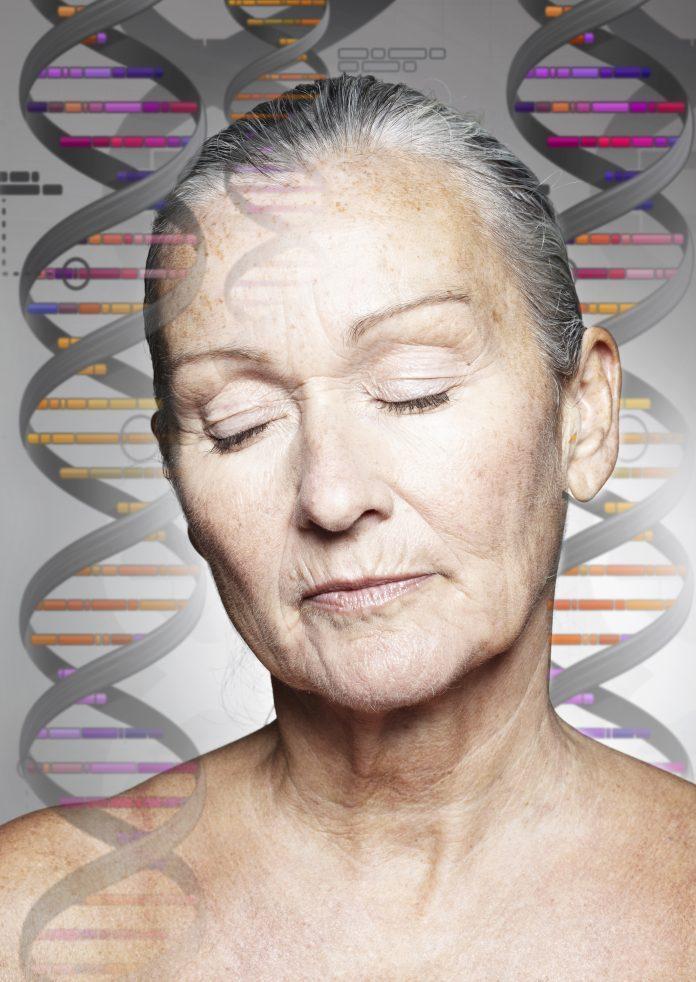The genetic theory of ageing: Truth or Fiction?
The genetic theory of ageing: Truth or Fiction?
Have you ever heard of the genetic theory of ageing, according to which your life expectancy depends on your genes? Let's take a closer look at the theory and find out what can be done to extend our lives.
There are two main ageng theories. The first one views human ageing, like the ageing of other organisms, as a biological process of gradual degradation of parts and systems of the human body, which ultimately leads to death. The genetic theory, on the contrary, states that ageing is a deliberate process that can be compared with, for example, puberty. We invite you to take a look at some key ways our genes affect our lifespan before we move on to discussing the basic concepts associated with ageing and genetics.
Each of us has 46 chromosomes, inside of which are our genes, which carry information about all the processes taking place in our cells. It is clear that genes play at least some role in longevity. Individuals whose relatives are long-livers usually live longer. However, this fact does not guarantee that the children of the long-livers will also live long. As the research shows, even identical twins do not always have the same life expectancy.
● Telomeres are the fragments located at the end of a linear DNA molecule. In simple terms, telomeres protect the ends of chromosomes where our genetic heritage is recorded. Each cell division is accompanied by a shortening of telomeres, and subsequent divisions lead to the loss of significant parts of DNA, which determines the cell's lifespan.
● Longevity genes. Scientists have also found out that there is a certain set of genes, the carriers of which can live for a very long time. People with a set of longevity genes differ from others in that their body metabolizes fats and glucose in a different way, their processes responsible for skin ageing are slower and the likelihood of cardiovascular diseases and diabetes is lower.
● Cellular ageing is a phenomenon that is usually associated with the loss of the ability of a cell to divide, as well as a decrease in the functional activity of cells as their age increases. Cells can divide only a certain number of times, after which they enter the ageing stage. Ageing cells can affect both neighboring cells and the entire body.
● Depletion of stem cells. The number of stem cells in the human body decreases. Depletion of stem cells due to ageing, serious illness or bad habits (smoking and drinking alcohol) deprives the body of its ability to heal itself. Because of this, the functioning of certain organs can be impaired, because stem cells become unable to differentiate or mature into different types of cells.
● According to epigenetics, which studies changes in gene expression, genes can be turned on or off. Some genes in the human body are only turned on for a certain limited amount of time.
Many studies have been made to prove or refute the genetic theory of ageing. Many studies have shown that survival rates are the same within the same species, which, perhaps, is the most compelling evidence that supports the theory. For example, the majority of the studies in twins also support the theory, showing that identical twins generally have the same life expectancy. However, it is known to everyone that there are many other factors in ageing, such as our lifestyle, diseases and others. If we take identical twins, they may have completely different lifespans depending on what lifestyles they are living.
Some scientists believe that differences in gene structure have explained about 15-30% of the variability in life expectancy. Others insist that this figure is several times lower and is about 7%, which indicates the dominance of diet, wealth, stress levels and other social factors in how long a person lives. However, scientists still don't know much about ageing. The only thing we all are 100% sure of is that a lot of factors can influence the ageing of our bodies, which means that this phenomenon can be a combination of several theories.
Moreover, we should remember that our behavior, exposure, and just luck have influence on ageing. Even if your family members tend to die young, you have a chance to live long. The most important thing that should be remembered is to take good care of your health.
It is a common fact that many people have a genetic predisposition to various diseases and syndromes. Cancer is one of the worst diseases. The majority of research suggests that living a healthy lifestyle reduces the risk of cancer in people who have an increased risk of developing one or more types of cancer. Not everyone can overcome this terrible disease, however, it can be prevented. The risk of developing cancer is also high in people who have unhealthy lifestyle habits such as smoking, high alcohol consumption, poor diet, or lower exercise frequency.
It follows that it is possible to prevent the development of various diseases, even genetic ones.
- Eat a lot of fruits, vegetables and coarse fiber foods
- Eat foods low in fat
- Monitor your weight
- Lead an active lifestyle
- Do not abuse alcoholic beverages
- Give up smoking
- Monitor your health
- Undergo preventive examinations annually
- Sleep well
- Reduce stress
We all know about the benefits of the types mentioned above but still don’t pay much attention to them. Now you know that healthy diet, sleep, exercise affect your genes too and may prolong your life.
Be the first to post a message!
